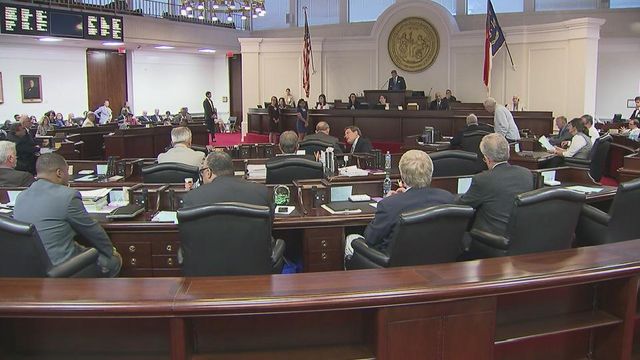Limits on regulatory costs, recycling rollback clears Senate
Senators approved a measure that would end the requirement that cities and counties host electronics recycling programs. The same bill would limit the imposition of regulations that would cost more than $100 million over five years.
Posted — UpdatedThe regulatory reduction measure, House Bill 169, now returns to the House, where its future is uncertain. If it follows the pattern that similar regulatory reduction measures have followed in recent years, the House will reject it and trigger a conference committee over the measure.
"The problem is, the counties can no longer find a recycler," said Sen. Trudy Wake, R-Guilford, explaining the landfill provision.
That means that landfills and county programs are stacking up palates of broken televisions and used computers, she said, showing fellow lawmakers a picture of one such facility that "wished to remain anonymous."
In 2010, lawmakers voted to ban televisions, computers and other electronics from landfills in North Carolina and set up an electronics recycling program, funded by television and computer manufacturers through annual fees and contracts with recyclers to accept their products.
That was a good move, said opponents of Wade's bill, because it kept the toxic metals inside the electronics out of the ground.
"As children, we are taught the 3 R’s of reduce, reuse, recycle," said Dustin Chicurel-Bayard, a spokesman for the North Carolina chapter of the Sierra Club. "It appears that the Senate understands the 3 R’s to mean revoke, rollback or repeal environmental protections for managing our state’s waste."
Other provisions of the bill would prohibit agencies from passing rules that would cost more than $100 million over five years in terms of their economic impact on regulated industries.
Sen. Jay Chaudhuri, D-Wake, argued that such a measure would force highly technical matters to come to the legislature for consideration, putting public health and safety at risk. Lawmakers, he said, largely lack the expertise to sort through questions about vaccine doses or environmental rules.
But Sen. Andy Wells, R-Catawba, argued that unelected agency officials should not be able to impose big costs on the economy.
"It may be something that I don't know much about, but if it's going to hit our economy to the tune of $100 million, I think I can take the time to get involved in it," Wells said.
Related Topics
• Credits
Copyright 2024 by Capitol Broadcasting Company. All rights reserved. This material may not be published, broadcast, rewritten or redistributed.






